|
Frog Time
Winter Rain
Easter
Quotes
Frog Time (11 March
2013)
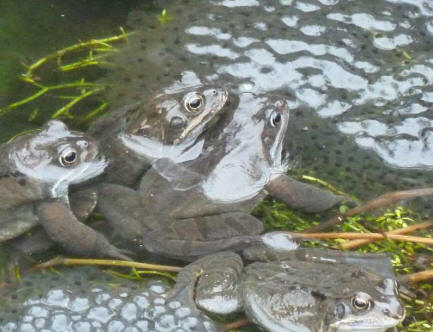
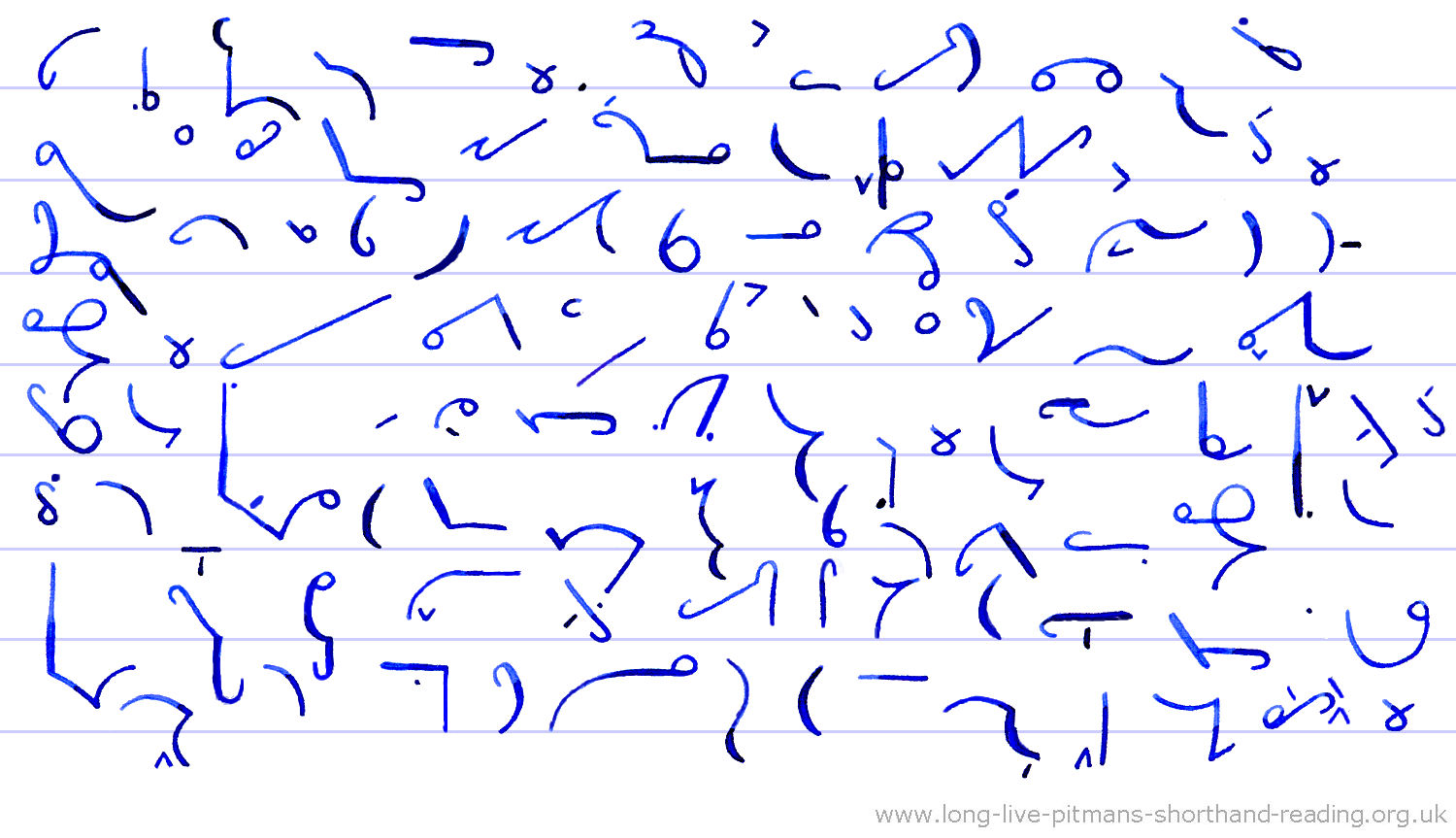
Well, it's that time of year again. The worst of the cold weather seems
to have passed, spring has sort of begun, and we frogs have decided to
return to the pond. There seems to be* more of us than usual and we think
this is because last year's spawn laying was so successful. We are happy
with our choice of pond, as there are many hiding places for the
tadpoles and lots* of green algae for them to eat.
If the gardener does not tidy up the pond plants or cut them back too
much, I think that this year will be equally successful for tadpole
production, as they do not like open water at all until they grow bigger
than a fish’s mouth or get their legs so that they can move out into the
surroundings.
* Omission phrase "there seems (to)
be"
* "lots" and "masses" Insert the
vowel as these are similar in outline and meaning
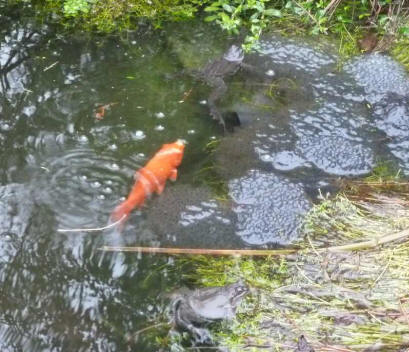
Jelly for afters
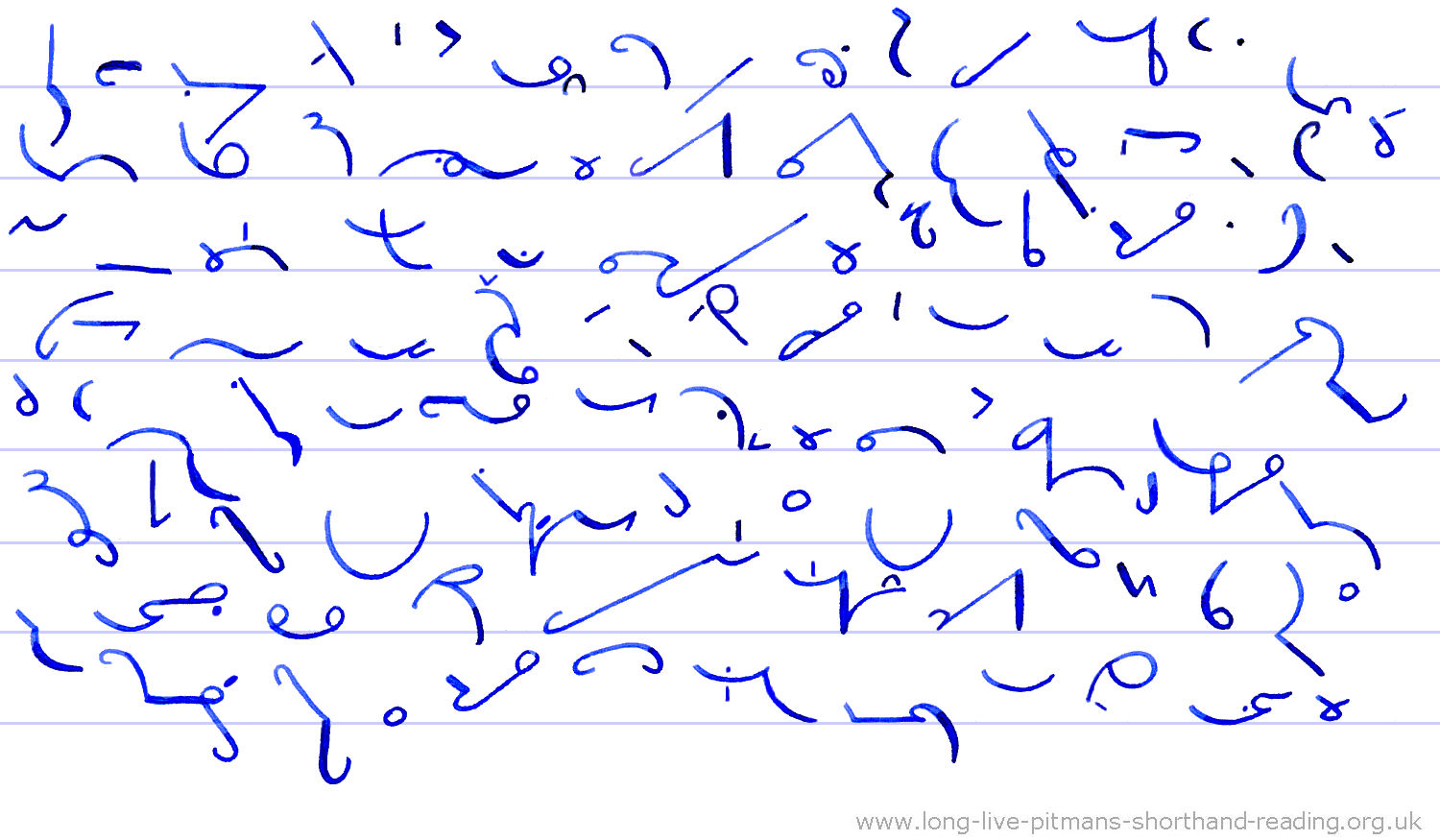
It was great to catch up on all the news from our friends, although we
noticed that a few familiar faces were missing. We do hope that they
have possibly gone to other ponds and not come to some unfortunate* end
somewhere. On the other hand*, it is always a pleasure to welcome the
many new arrivals, and to swap stories on any new or refurbished ponds
that may have appeared in gardens in the area. Some of the first time
visitors were concerned* at the number of fish patrolling the pond, but
as fish numbers do not appear to have increased since last year, we are
not unduly worried about this, especially as frogspawn production is
always more than enough to cover any losses incurred.
* "unfortunate" Optional
contraction
*Omission phrases "on the oth(er
h)and" "were (con)cerned"
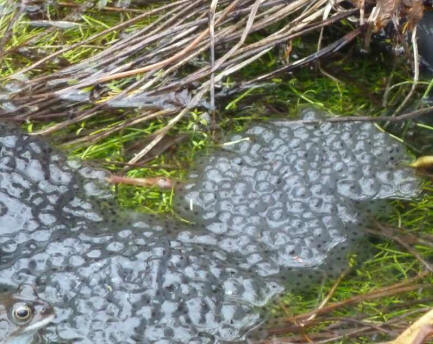
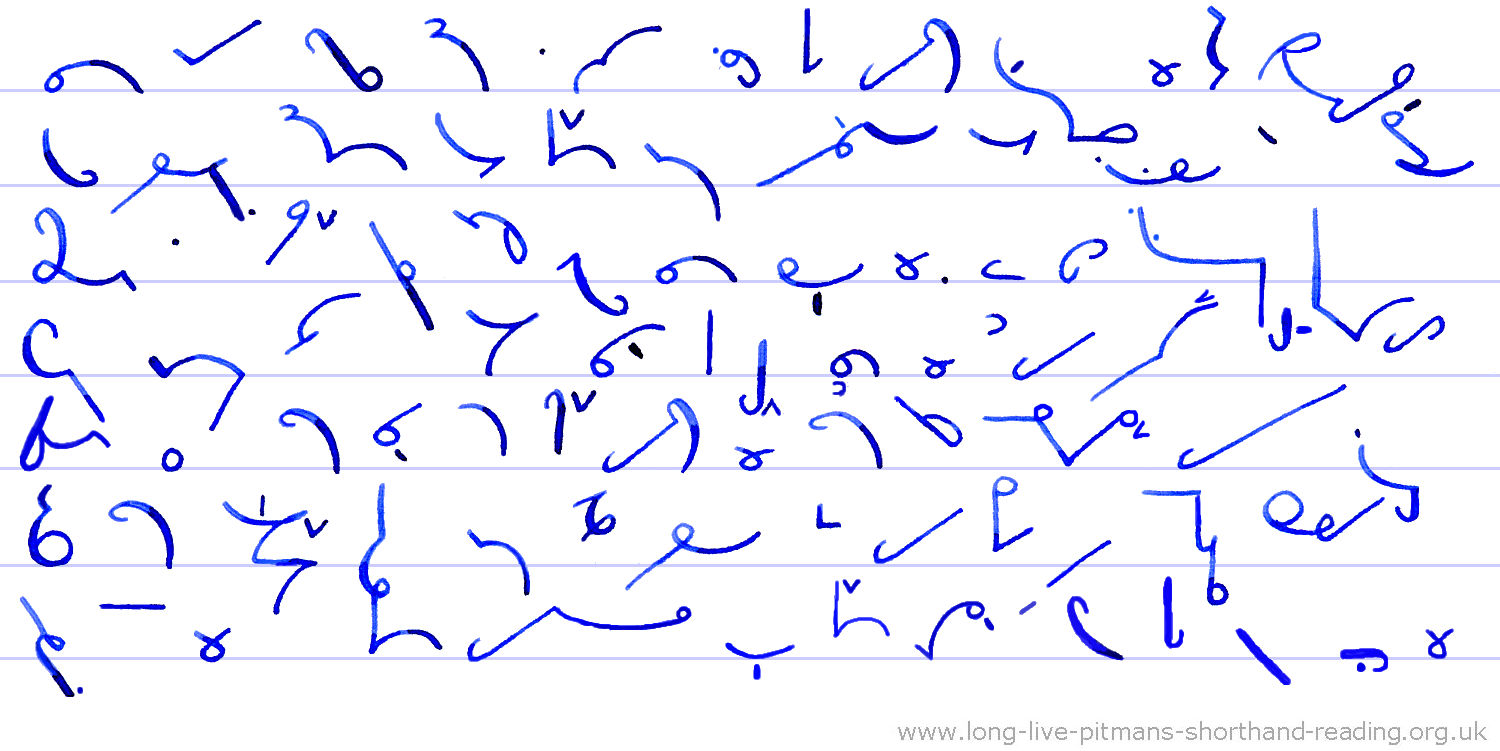
Some of our members were a little concerned at the weather forecast.
Although the last few weeks* have been reasonably warm for the time of
year, resulting in the commencement of spawning, there is now a high
possibility* of frost and even some snow. The cold will not affect
tadpole development* too much and will only slow it down somewhat. What
we really don’t want just now is very hot or dry weather. From past
experience we are confident that this is very unlikely at this time of
year and that is the reason why we start our activities as soon as we
possibly can. We know there is* no time to lose and every advantage to be
gained.
* Omission phrase "last few wee(k)s"
* "possibility" "development"
Optional contractions
* "we know there is" Doubling for
"there"
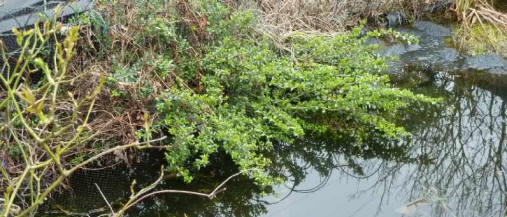
Secluded peaceful pollywog Heaven
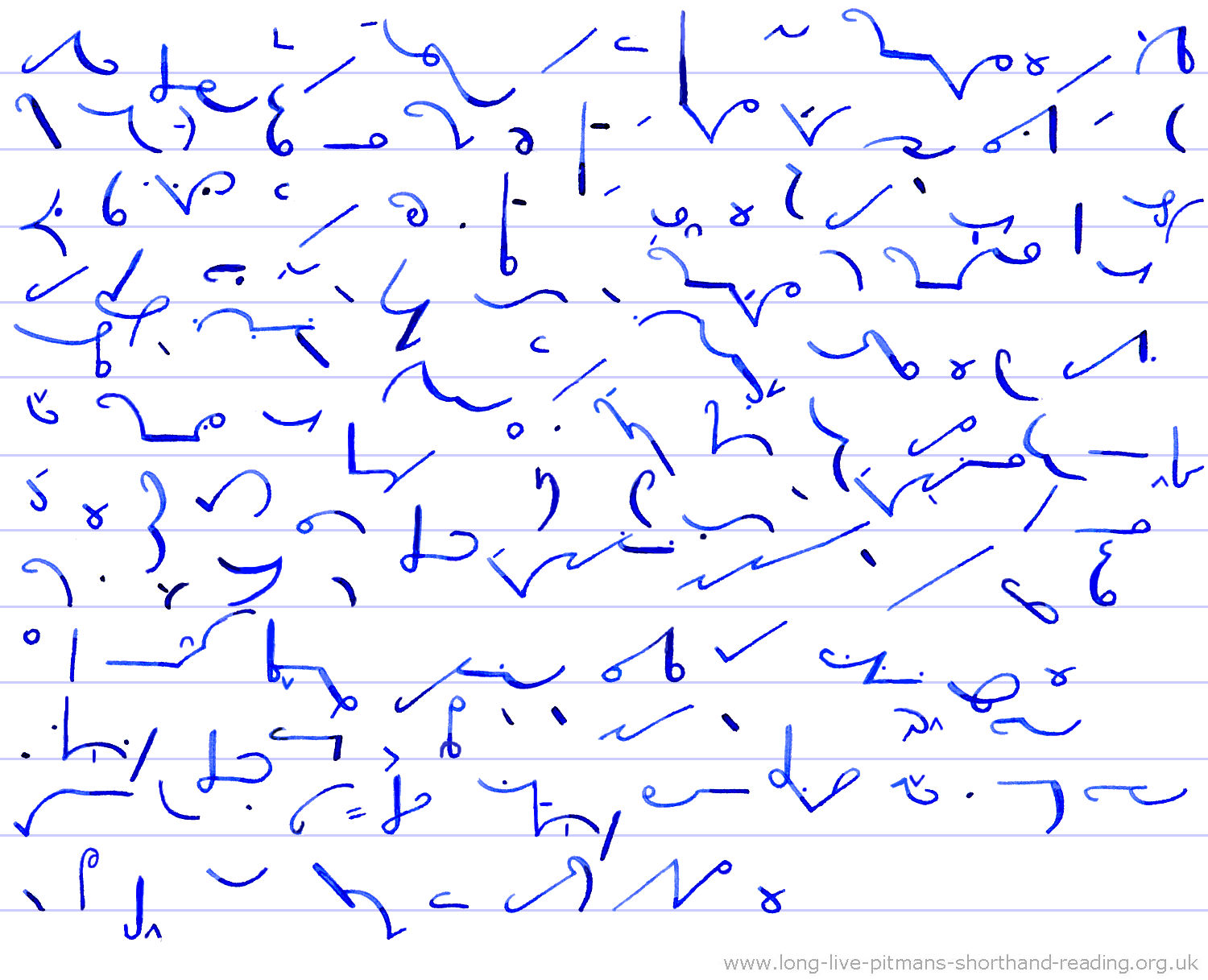
We have been discussing why our offspring are called tadpoles and not "frogpoles".
Our oldest member informed us that this comes from the words "toad" and
"poll" meaning head, and they share this appellation with our friends
the toads and newts*. Although we all know the difference instantly, we
generously agreed not to change the name to frogpoles or froglings, in
the interests of amicable living with our amphibian neighbours. However
we did find froglets in the dictionary as a proper term for them once
they have come out of the pond. There was also some discussion on their
other name of pollywogs, which comes from an old English word "polwygle"
and we were all rather pleased with this, as it accurately describes the
wiggling heads of our energetic youngsters. The etymological discussion
concluded to the satisfaction of all and we all dispersed around the
garden to look for a well-deserved entomological snack and find a cosy
corner to settle down in, before the cold weather returns.
* Young newts are "newtpoles"
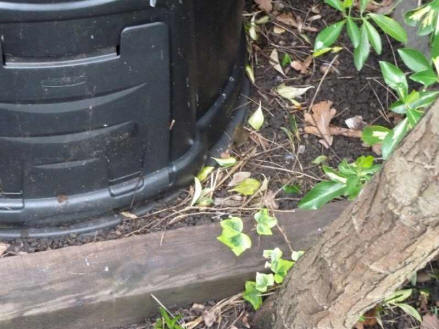
Worms for all - there is
such a thing as a free lunch!
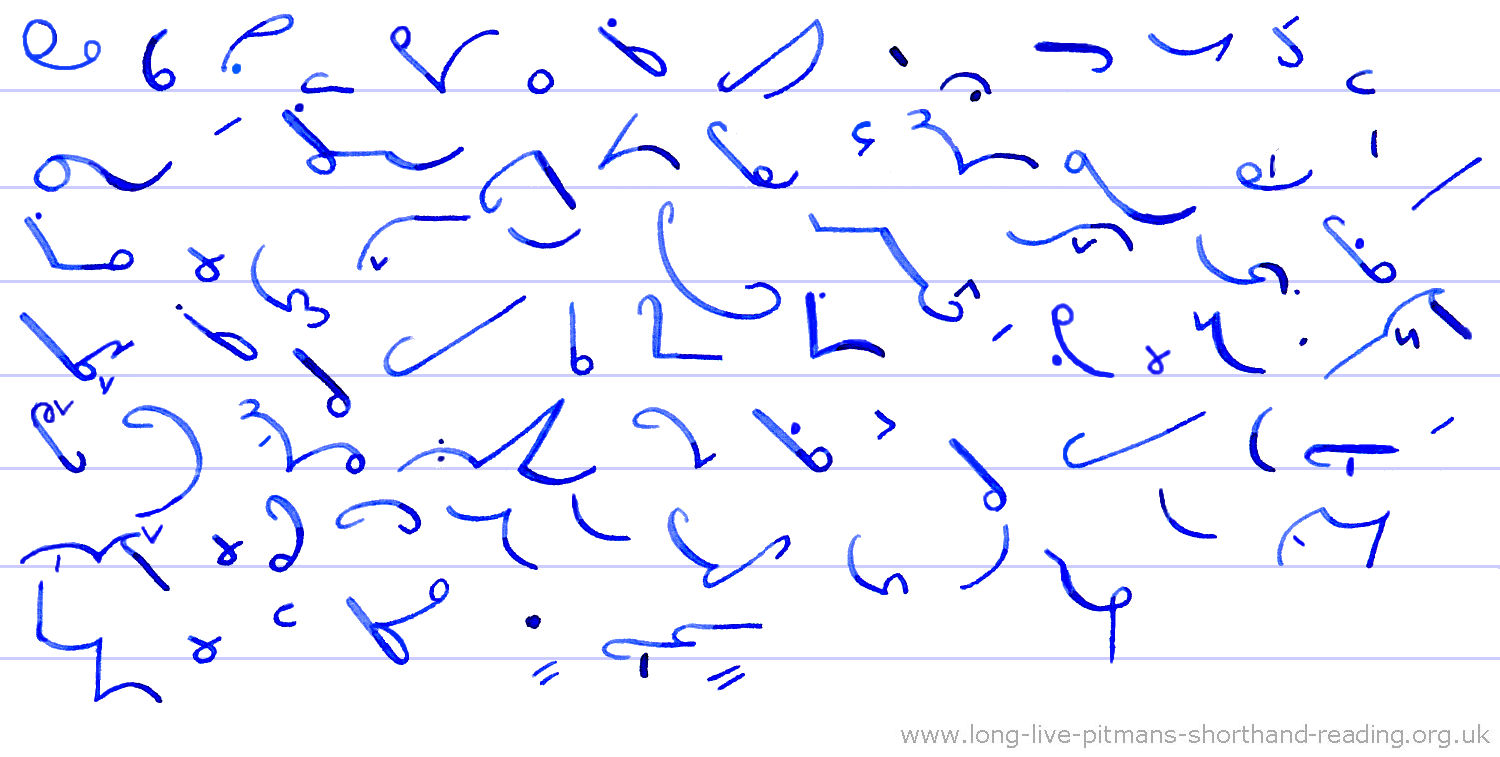
As soon as this last cold spell is past, we shall all meet again in the
pond, when swimming and basking will be much more* pleasant with the warm
spring sun on our backs. If you would like any further information*, I
can be found in my favourite place behind the compost bins, where it is
dark, damp and safe. I have a reliable supply of fresh worms emerging
from the base of the bins where they grow and multiply. There is more
than enough for everyone if you wish to visit for lunch at any time.
With best wishes*, A. Croaker. (652 words)
* Omission phrases "much m(ore)"
"further (informa)tion"
* "best wishes" Upward Ish to make
a convenient join

Froggy was right - it snowed the day after he wrote his report
Top of page
Winter Rain (19 March 2013)
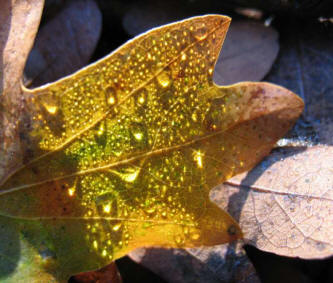
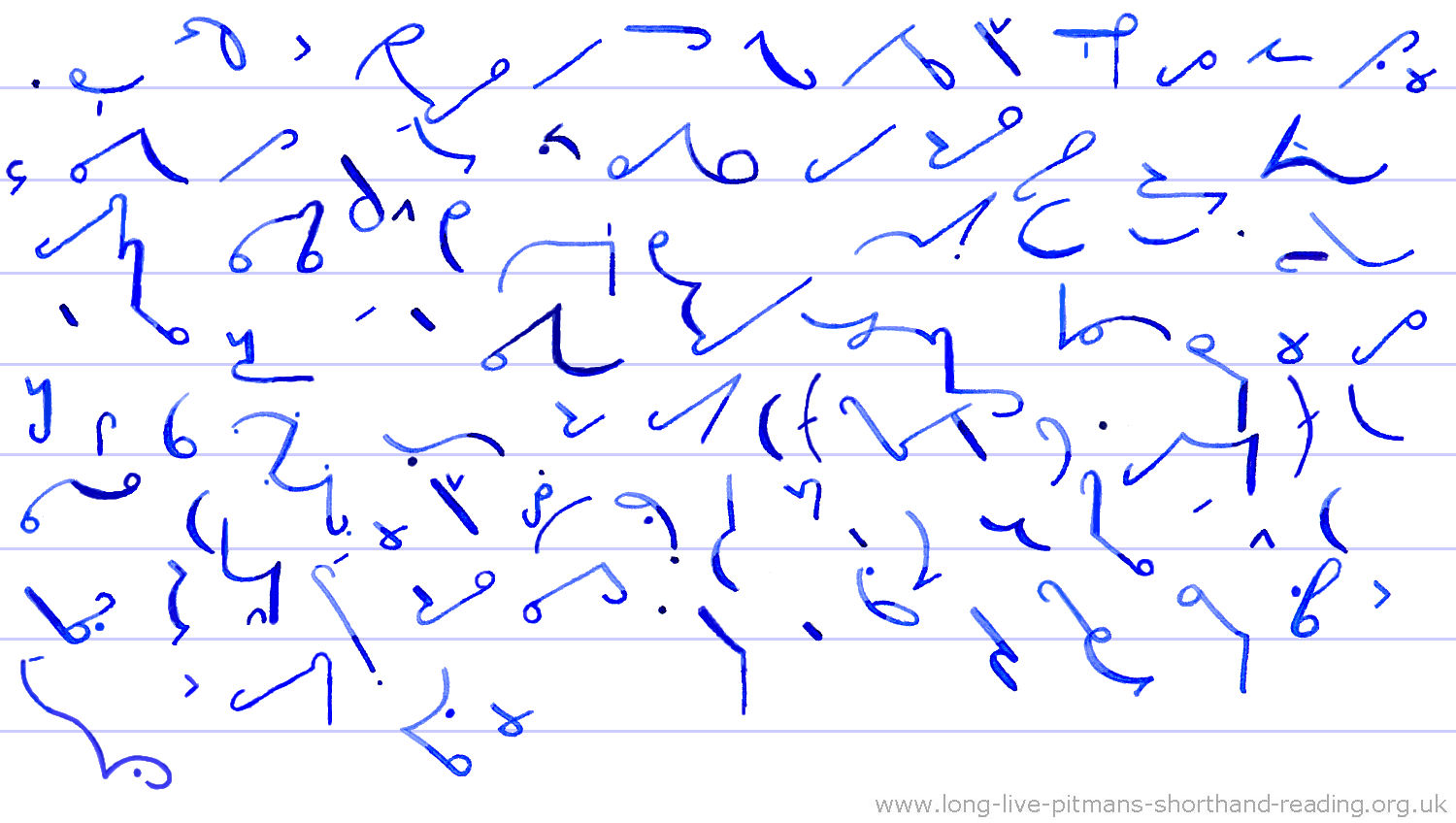
The snow and frost of the last few weeks* are gone
and have been replaced by gusty winds and cold rain. When the heavy rain
bounces off the hard surfaces, we always used to call the jumping water
drops "soldiers", as they looked as if they were marching along in a
great company, all identical* and all heading in the same direction at
the same speed. Once I had been told this imaginative name, I would
watch them (preferably through a window) for as long as they continued.
By constantly staring at them, I tried to see the individual drops and
how they behaved, although the plopping always happened a bit too fast
to be able to perceive the separate stages of the formation of the water
shapes.
* Omission phrase "last few wee(k)s"
* "identical" Contraction,
therefore on the line
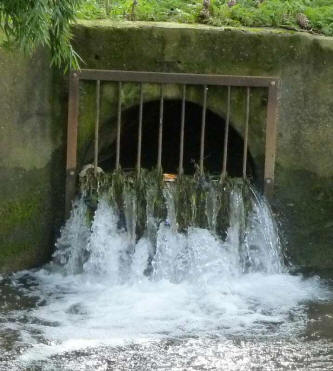
It has been raining pondweed, plus a few cans and crisp packets
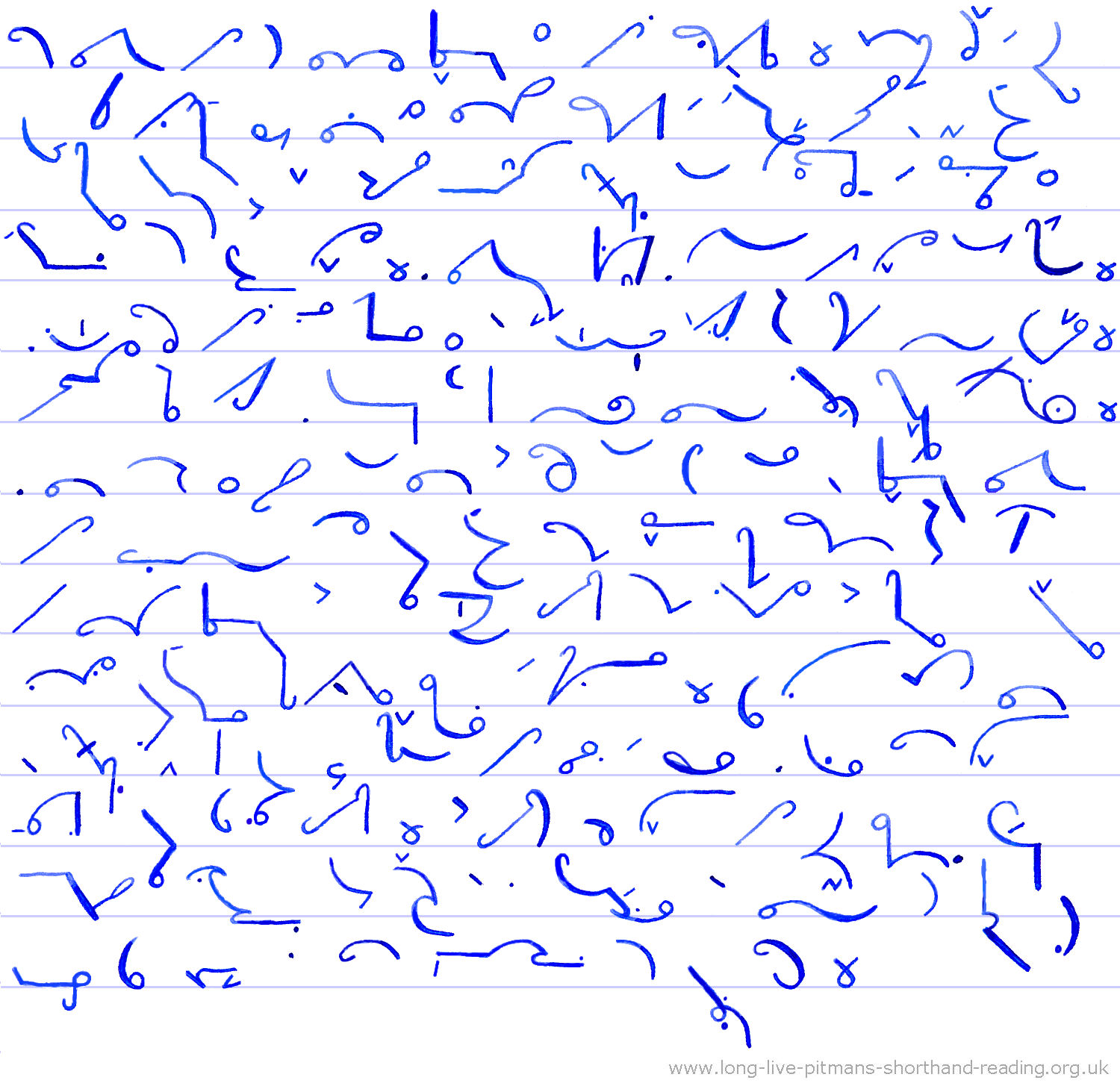
Very heavy rain was sometimes described as "raining stair-rods". I am
sure the size and shape of even the largest raindrop is not the same as
the smallest stair-rod and obviously refers to how the falling drops
appear to the eye, always accurately portrayed in cartoons and sketches
as oblique or vertical lines. The heavier the deluge, the longer are the
lines in the drawing. The common phrase "raining cats and dogs" is of
unknown origin, although there are many theories. Regardless of its
origin, the fact that it mentions something absurd* provides the
required emphasis. The same method is used in some of the phrases in
other languages to describe heavy rain, claiming impossible objects
falling from the sky during the storm, although the majority are merely
descriptive of the gushing water or the appearance of the drops: pipes,
mallets, pitchforks, ropes, strings and chair-legs. These latter also
seem to portray how it feels when the driving rain hits and stings the
face, more like solid objects than water. All the weather words like
rain, shower, stream, flood can be used metaphorically for the arrival
of an over-abundance of something, so it would be easy to extend this to
create a more comical or bizarre* version.
* "absurd" and "bizarre"
Helpful to insert the vowels, as the outlines and
meanings are similar
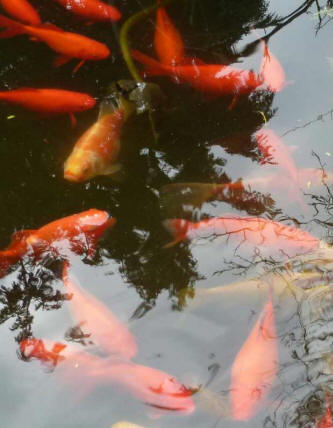
Is there life beyond the pond?
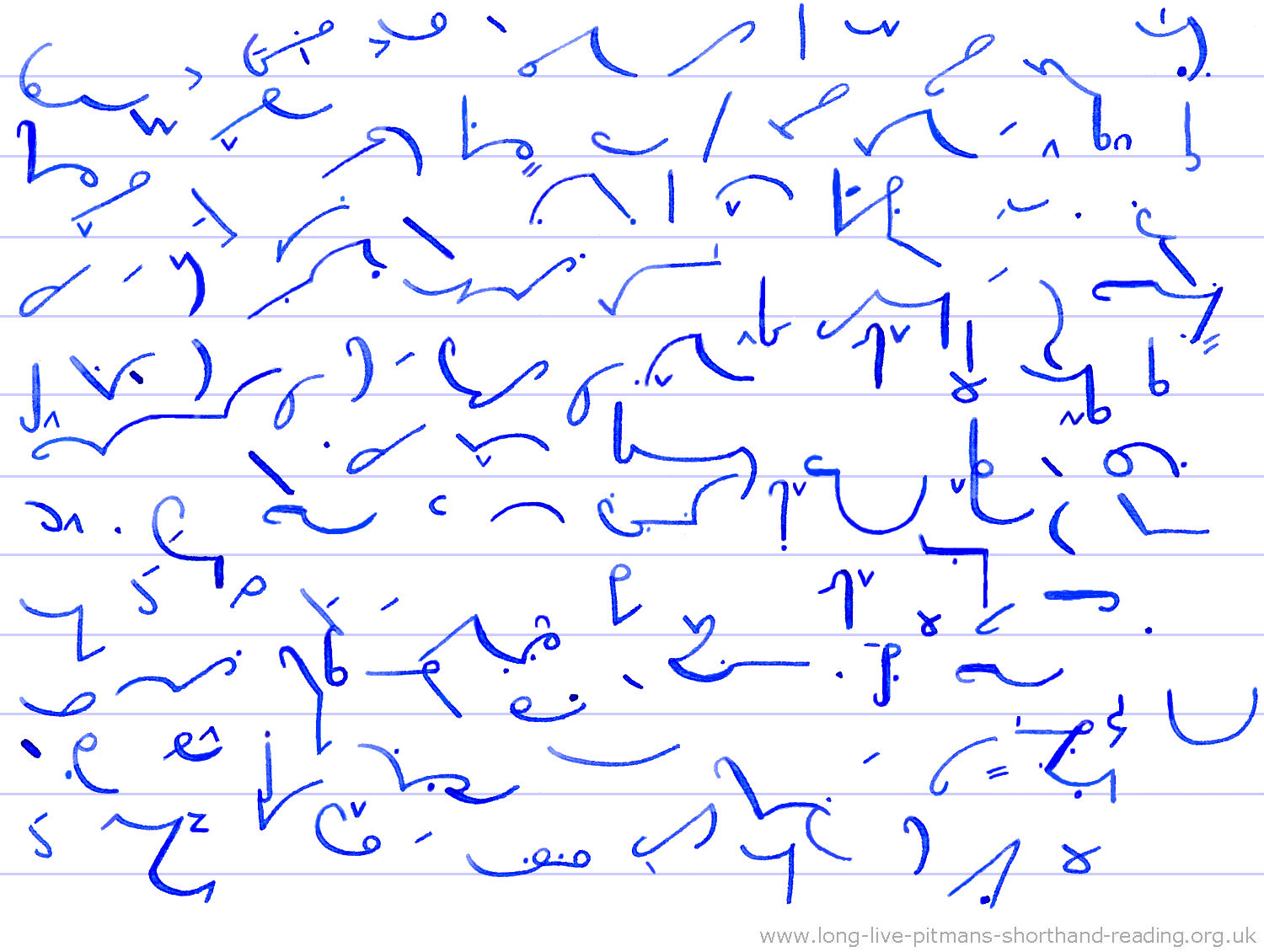
Listening to the thunderous* noise of heavy rain at night used to
produce uneasy dreams about the rising River Thames, near which I used
to live, and how it would rise up the hill to be lapping at my doorstep, not a comfortable story, and I was relieved in the morning to look out
of the window and see that Greenwich down below was still there and
everyone still alive and dry! Nowadays it is more likely to be a story
of my adventurous goldfish deciding to swim around a flooded garden,
with me frantically trying to get them back into the pond as the puddles
and rivulets start to shrink and dry. Yet again, the next morning
brought the expected scene of a sodden garden but with the fish all safe
and sound, contentedly remaining in their brimful and well-oxygenated
pond, and enjoying the flies and insects washed into their reach.
* "thunderous" Note that "thunder" uses doubling,
similarly "wonder" and "wondrous"
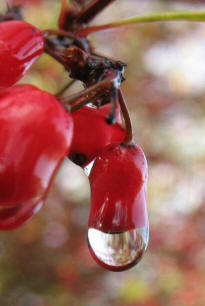
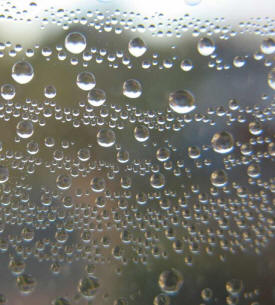
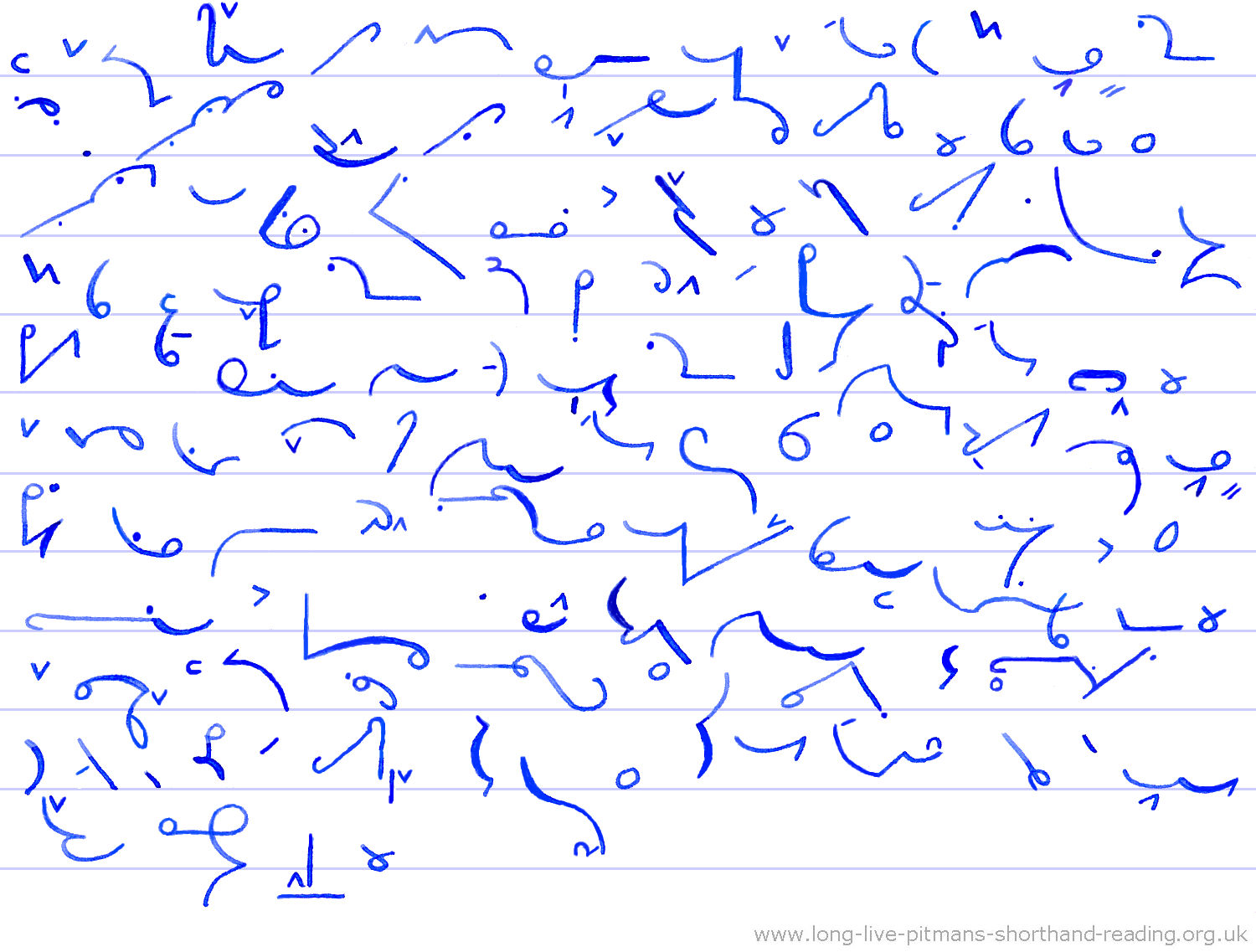
When I hear the driving rain and I am snug indoors, I often think about
Noah’s Ark amidst the relentless pounding rain and the rising waters.
This event is related in Genesis Chapter 6 of the Bible. I remember
watching a feature film about this, when those inside the ark were
sitting around and suddenly the suspended lamp started swinging, letting
us know that the ark had been lifted off the ground. I almost felt my
chair lifting off the floor as well, as I watched Mrs* Noah’s startled
face look around the cavernous interior, listening intently to the first
creaking of the timbers, a sound they would be living with for many
months to come. I sympathised with her concerned expression, as she was
hoping that the carpentry was up to standard and watertight, although
the viewer is in the fortunate position of knowing the final successful
outcome.
* "Mrs" Uses full strokes, to
differentiate from "Misses" which uses Ses Circle
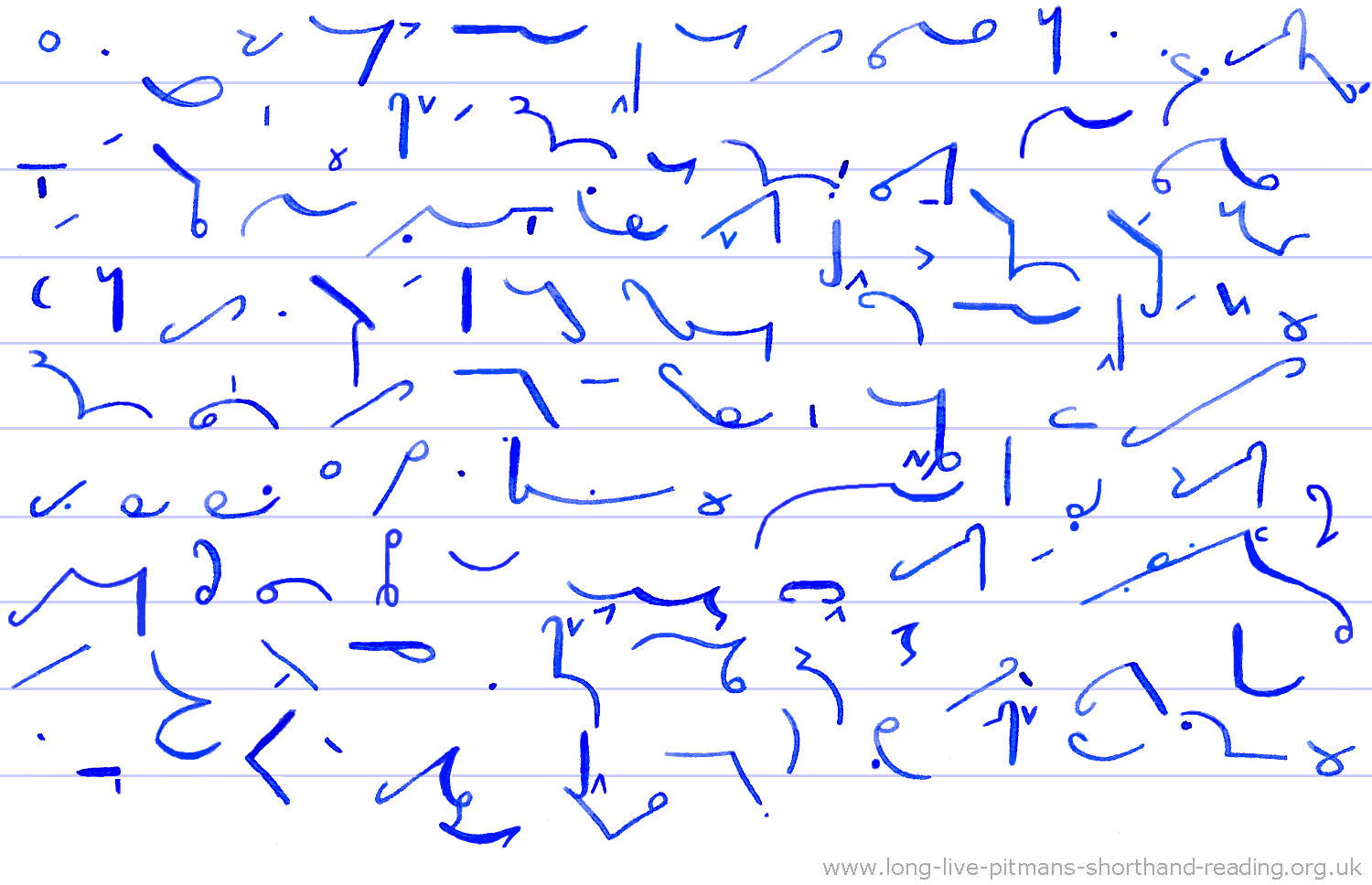
As a youngster, I would enjoy going out in the
rain as long as I had a completely waterproof coat and boots on. Dry and
warm under the roomy hood, long sleeves and long raincoat fastened right
down to the bottom button, I felt that I had won a battle and had not
been prevented from going out and about. Warm summer rain can be quite
pleasant, but nowadays the cold winter wet is not seen as such an
adventure. Looking at sheets of water through the window, there is some
satisfaction in knowing that the groundwater and reservoirs are filling
up against the drier months of the year, and that the roof will be doing
a good job of withstanding the downpours, keeping us safe and dry in our
"ark". (767 words)
Top of page
Easter (26 March 2013)

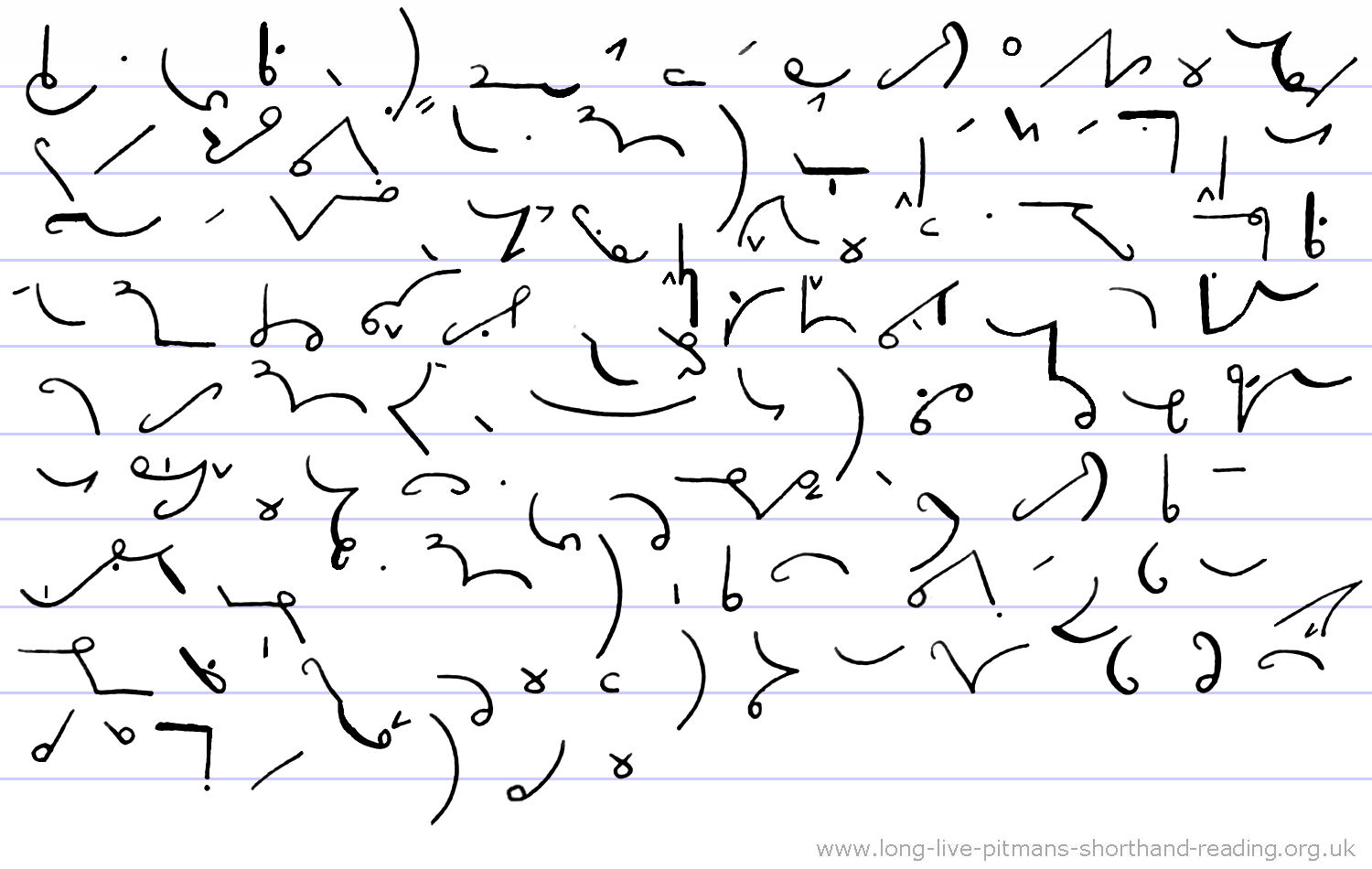
It is only* a few days to Easter weekend, and the cold and snowy weather
has returned. In this country people are always hoping for a warm Easter
to go out and about, and get out in the garden and parks to enjoy the
pleasant outdoor life. With a couple of extra days off work, it seems
slightly wasted to have to spend the whole time huddled indoors, or
dashing from one warm shop to another for the Easter sales instead of
strolling in the sunshine. For those who have more than a few years'
experience of British weather, it is quite unreasonable to expect a warm
Easter, but it is more hoping and wishing than any real expectation*
based on previous years. When Easter falls in April then there is more
chance of us getting our Easter wishes.
* "it is only" On its own, "only" is
written with full N and L strokes
* "expectation" Optional contraction
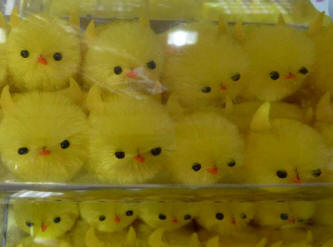
Shining with yellow loveliness
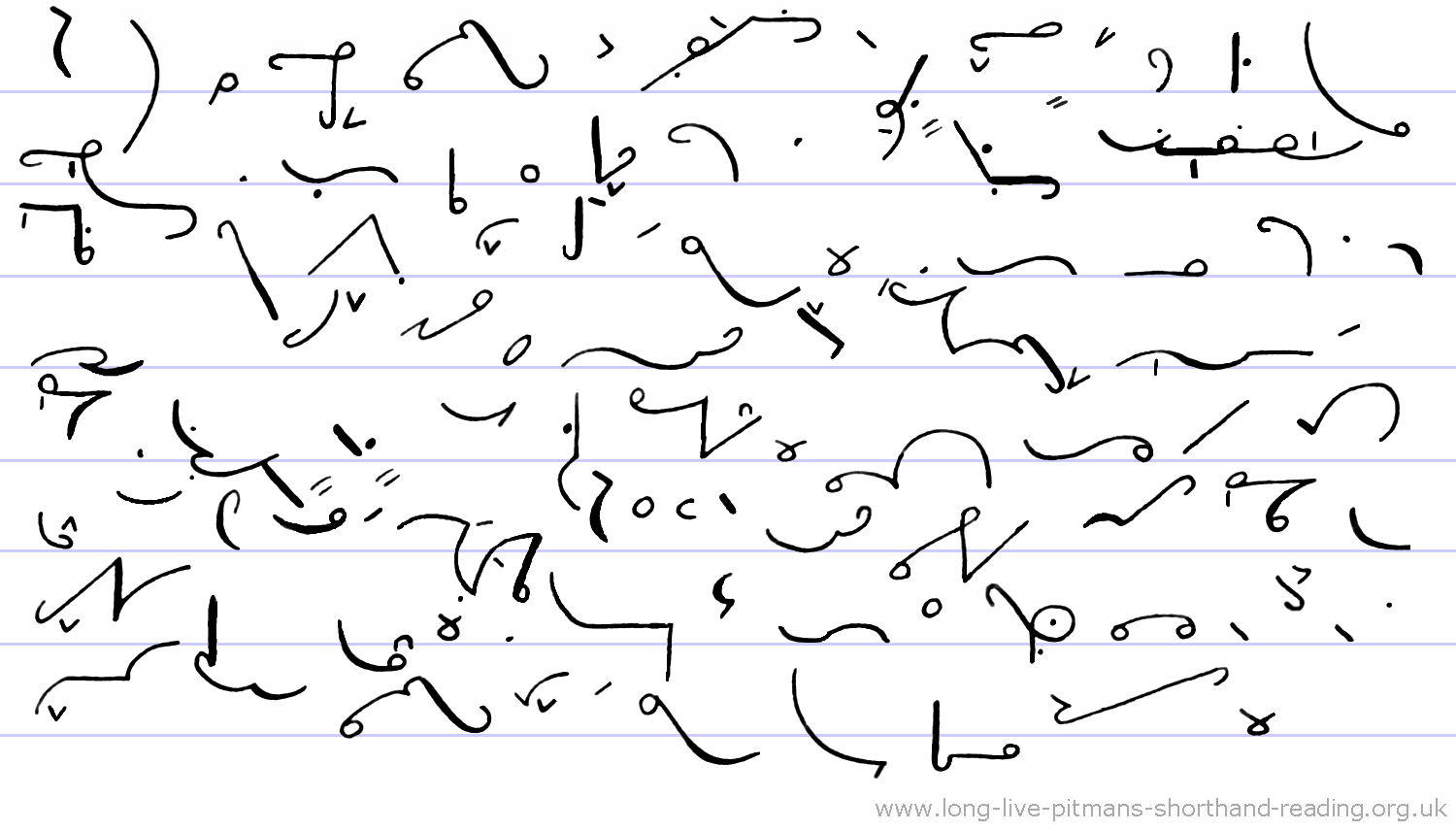
Although Easter is the Christian celebration of the resurrection of
Jesus Christ on the third day after his crucifixion, the name itself is
derived from a pagan Anglo-Saxon goddess, probably representing light,
dawn and spring. The name comes from a word meaning "shine" and was
first mentioned by the Northumbrian monk and scholar The Venerable Bede
in the 8th* century. Similar names are also found in other languages and
mythologies, although as with all ancient history modern scholars have
widely differing views. The fact that the name has persisted seems to
point to a likely celebration of light and spring after the difficulties
of winter.
* "eighth, eightieth" Always insert the
diphone in "eightieth" as otherwise the outlines are the same
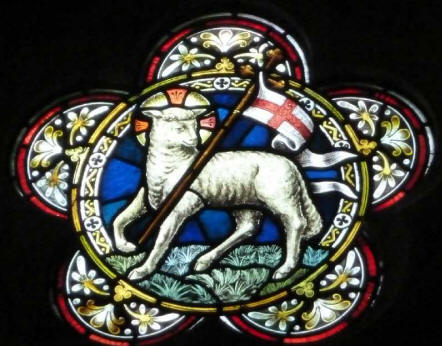
The Lamb of God
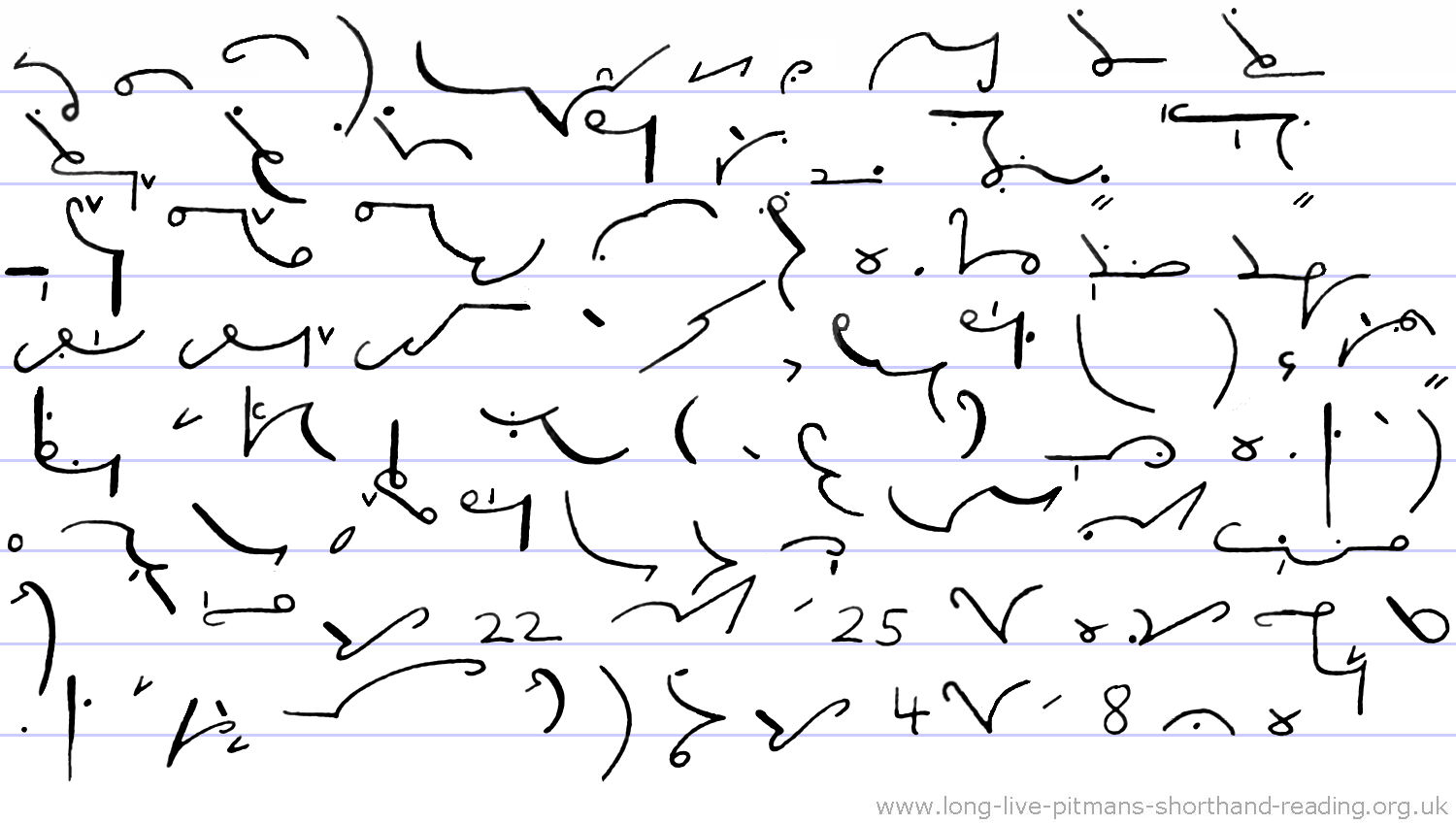
Here is some more Easter vocabulary: Lent, Lenten, Pasch, Paschal, Paschaltide, Passover, Palm Sunday, Holy Week, Gethsemane, Golgotha,
Good Friday, sacrifice, sacrificial lamb, Sabbath. The terms Pentecost,
Pentecostal, Whitsun, Whitsuntide, Whitweek all refer to the seventh
Sunday after Easter when the Holy Spirit descended on the twelve
disciples, enabling them to fulfil their commission. The date of Easter
is movable, being the first Sunday after the full moon following the
March equinox, and therefore occurs between 22 March and 25 April.
Eastern Christianity bases the date on the Julian calendar and their
Easter falls between 4 April and 8 May.

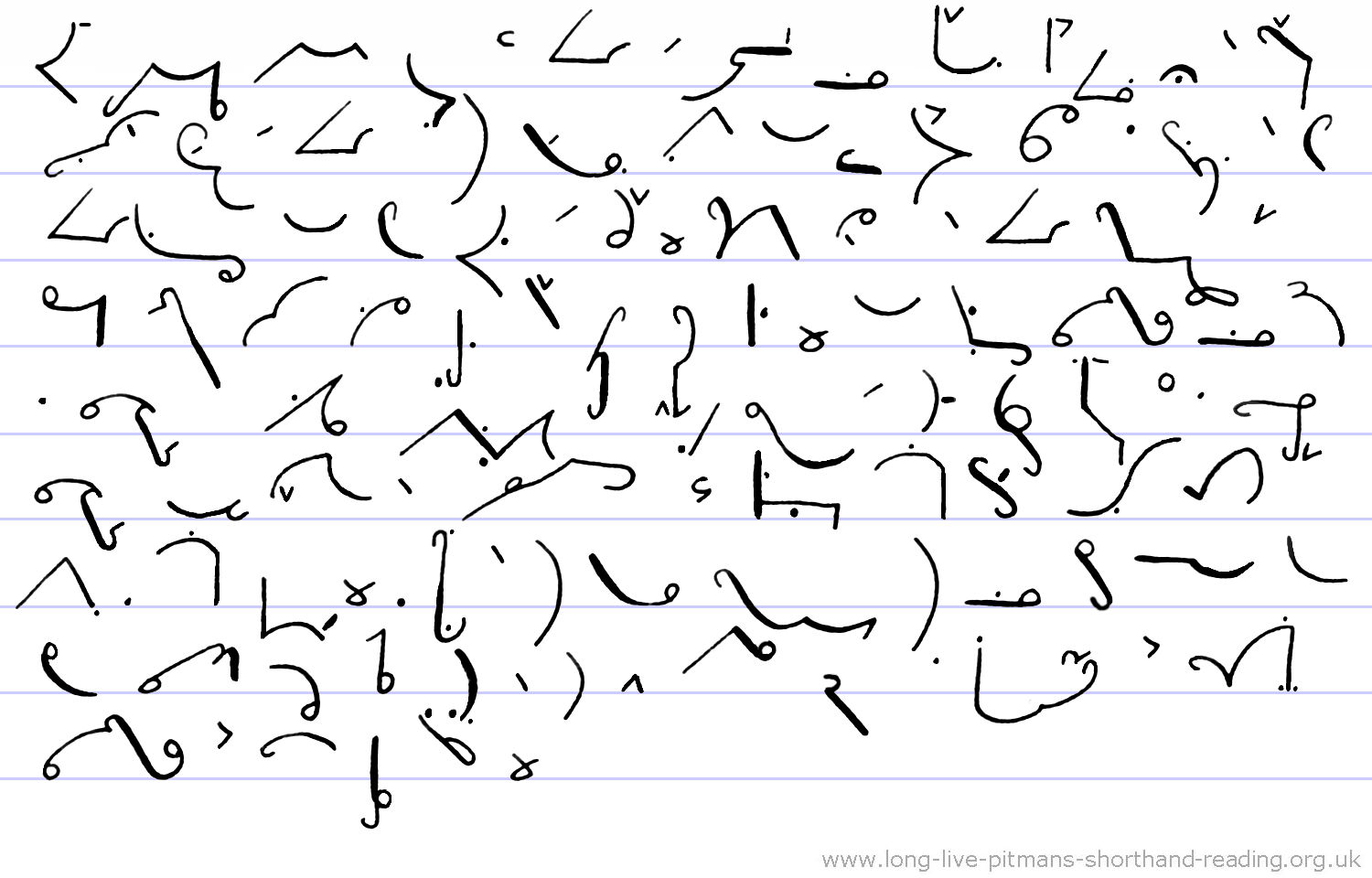
Shop windows are now filled with chocolate and sugar eggs, tiny toy
chicks made of bright yellow fluff, and chocolate Easter bunnies wrapped
in gold foil, as well as a plethora of other chocolate confections in
every shape and size. There will be lots* of chocolate breakfasts on the
Sunday, and probably little else eaten by children throughout the day.
In pagan celebrations eggs were a symbol of the earth’s rebirth each
spring and so this has been adopted as a Christian symbol of the new
life of resurrection, with the decorated empty blown shell also
representing the empty tomb. The tradition of Easter bunnies bringing
the Easter eggs has been going for several hundred years, and it is easy
to see how rabbits would be a continuation of the fertility celebrations
of the more distant past.
* "lots" and "masses" Insert the vowel, as
these are similar in outline and meaning

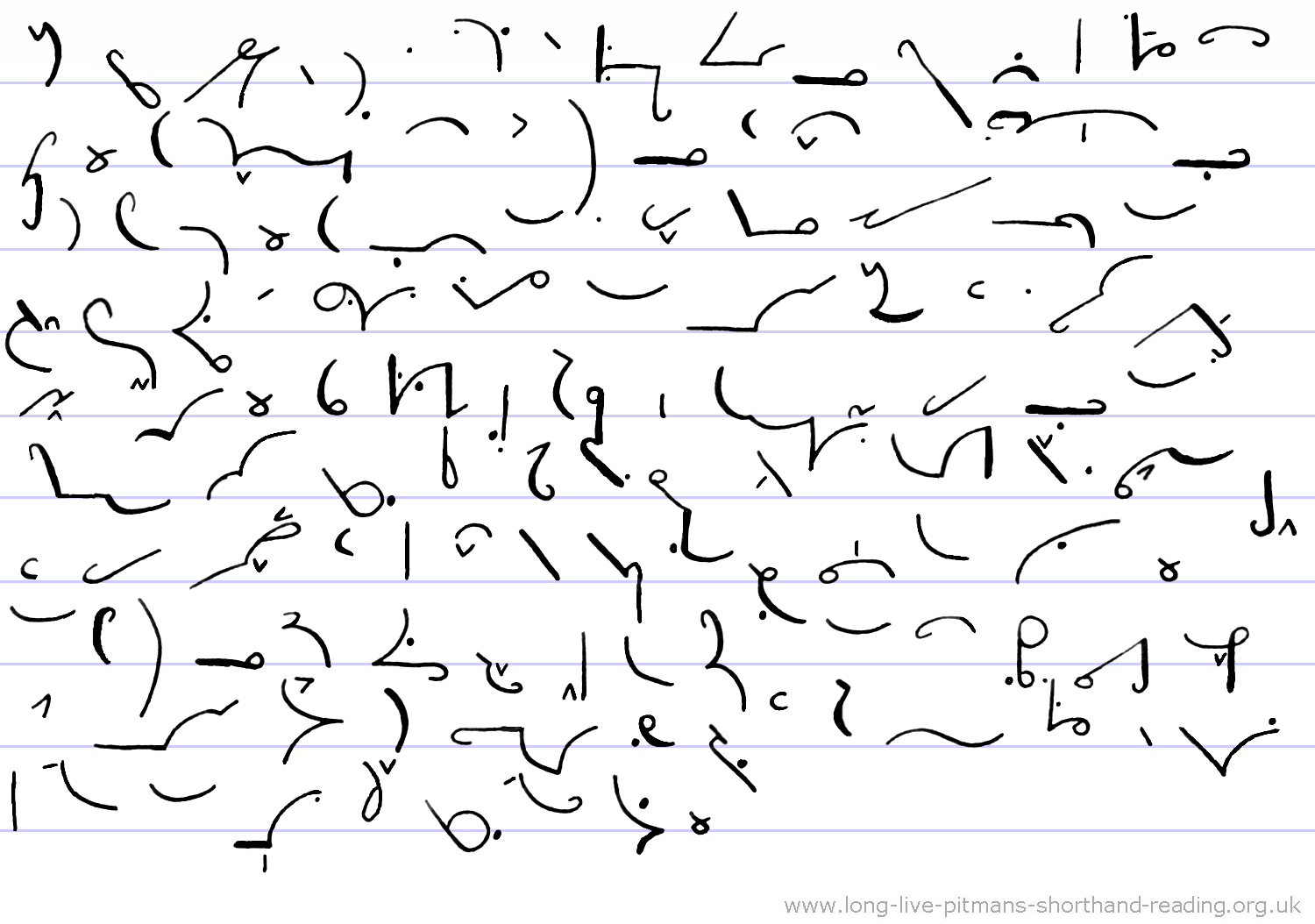
I was pleased recently to see an array of decorative chocolate eggs,
probably aimed at adults more than children. They reminded me of the
Easter eggs that my grandmother gave us every year. They came in a white
box, and were covered in beautiful flower shapes and swirly patterns in
coloured icing, with a yellow ribbon round the middle. This delayed the
eating of them considerably, but eventually we gave in, breaking little
pieces at first, and then speeding up, followed by a slowing down when
we realised that it might be better to save some for later. Any other
Easter eggs were shaken to find out if there were* any more sweets hidden
inside, and the coloured foil was carefully saved to play with, although
many attempts to peel it off in goodly-sized pieces often failed.
* Omission phrase "there (w)ere"
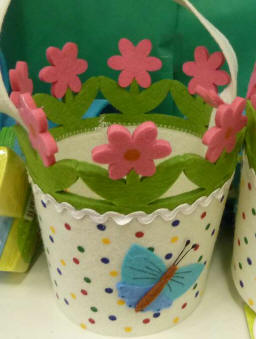
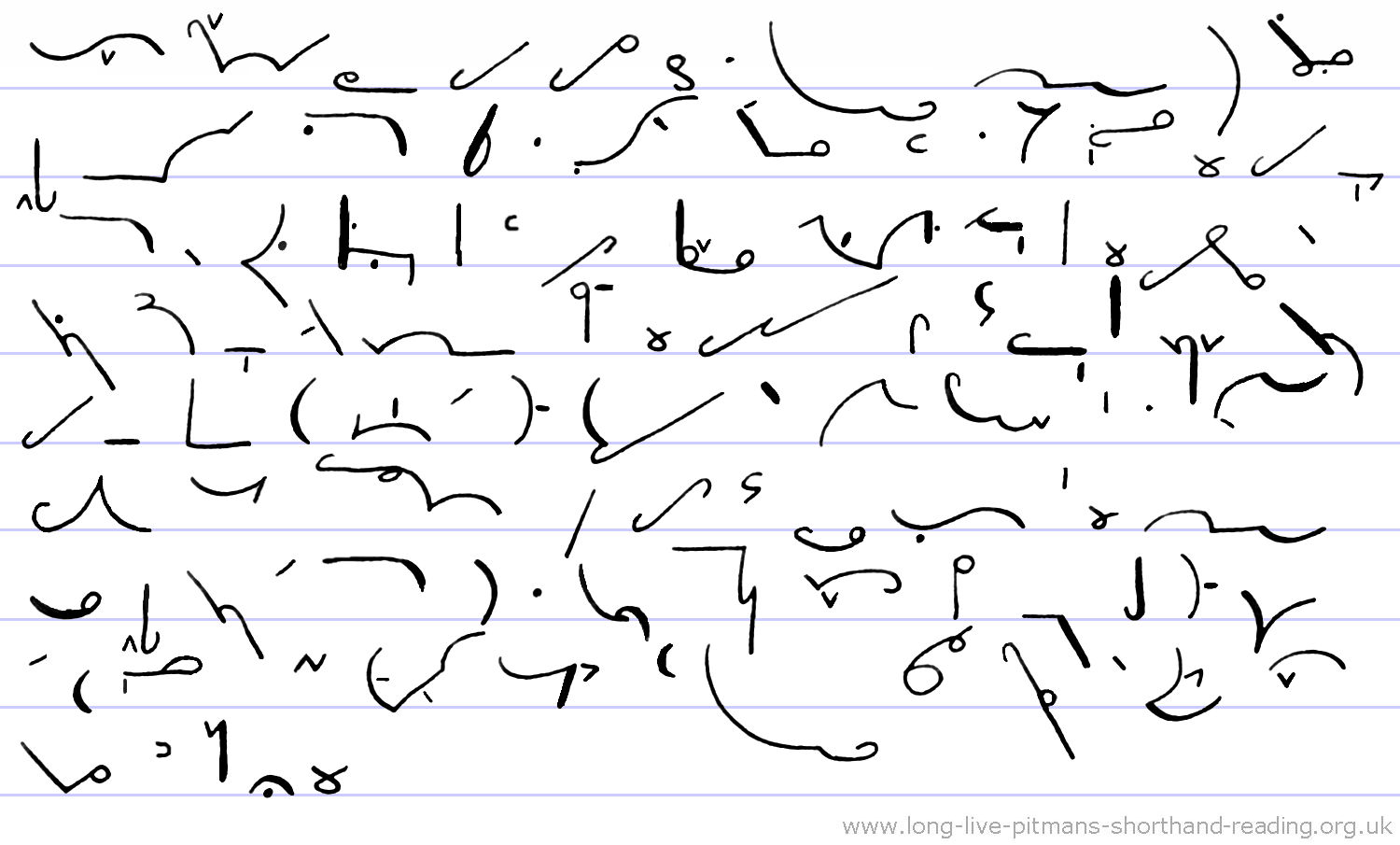
In my primary school we once spent an afternoon making Easter baskets
out of coloured card, just a shallow box with a handle across. We cut
the card to shape, decorated it with our own designs, and folded and
glued it. Wisps of paper were cut up to make straw. We were told that
the glue had to dry before we could take them home, and so they were all
left overnight on a long shelf in the classroom, each one with the
owner’s name on. Making things out of paper and card was a favourite
activity of mine, as it could be done so easily and without cost, and I
thoroughly enjoyed that afternoon, as well as the prospect of showing my
parents what I had made.
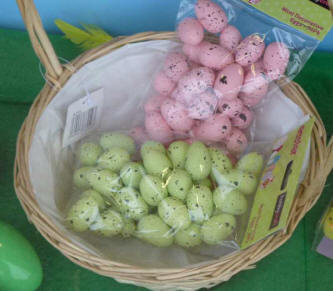
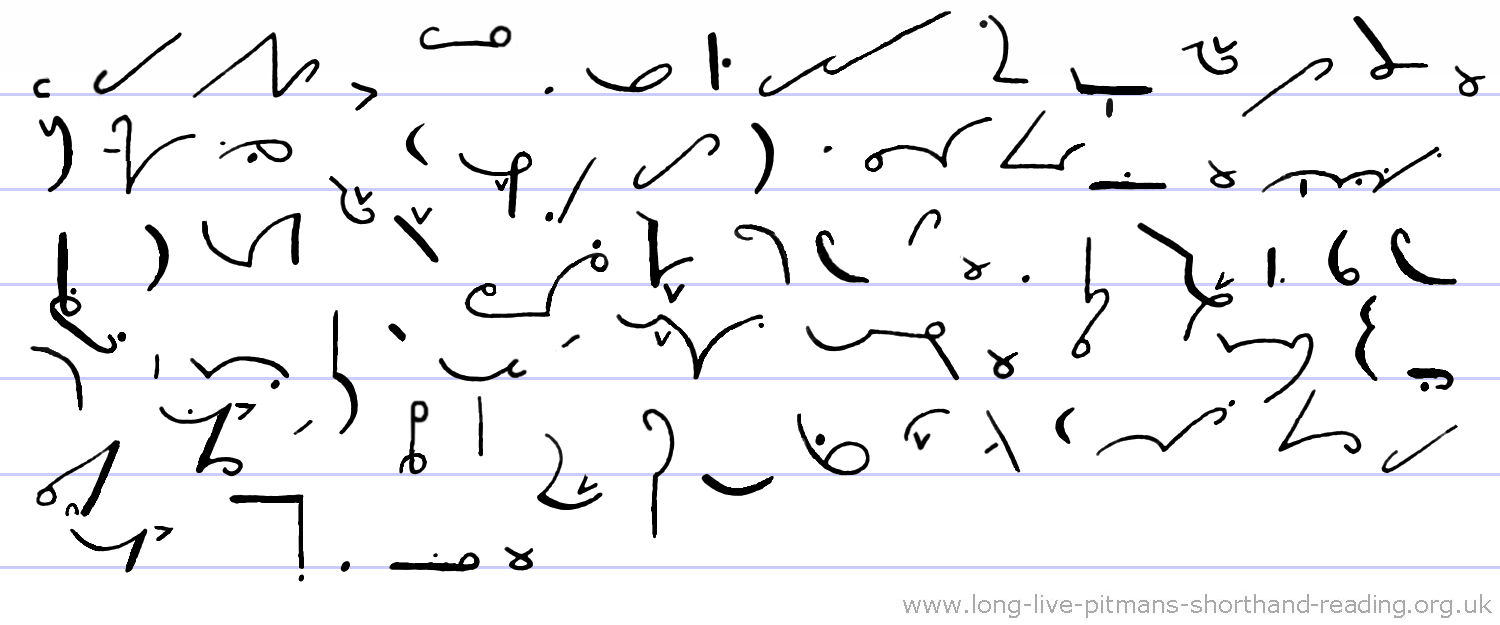
When we returned to the class the next day, we were asked to go and find
our own basket. I was utterly* amazed* to find that inside each one was a
small chocolate egg. Momentary disbelief was followed by squeals of
delight from every child. The teachers obviously did this every year,
but to me it was all new and entirely unexpected. I am sure that they
gained huge enjoyment and satisfaction at seeing thirty young faces
light up that morning, much more than* we enjoyed getting the eggs.
* "utterly" Insert the vowel in this and in
"truly" as they are similar in outline and meaning
* "amazed" and "amused" Always insert the
vowel
* Omission phrase "much m(ore tha)n"

More delicious than cuddly
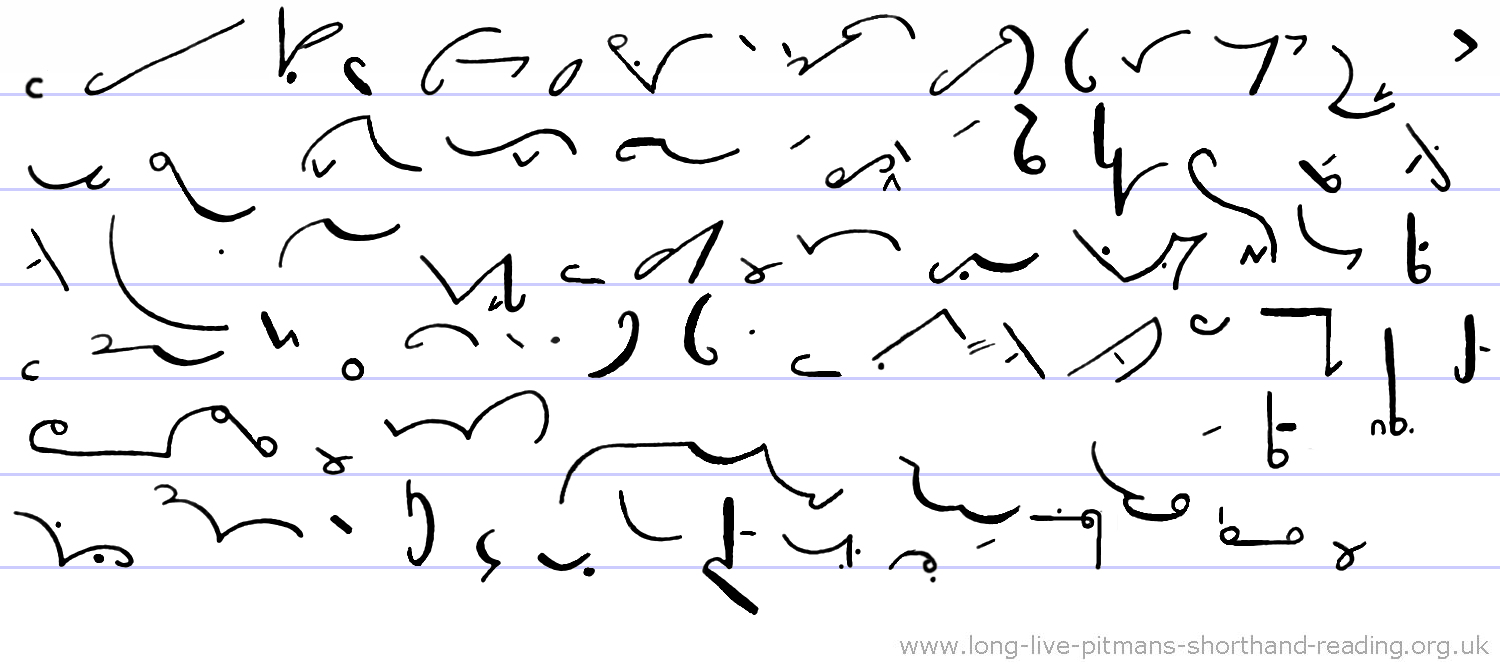
When we are at last* able to welcome the first spell of warmer weather,
then I will enjoy seeing all the new spring life in my garden and
surroundings, and all those daffodil flower buds open up after a long
period of "cold storage". I am waiting patiently for the days when
walking about is more of a pleasure, than a cold wrapped-up rush in
order to* get the duties done as quickly as possible*. I am also looking
forward* to having fingers and toes remain warm all on their own without
the need for double knitted mitts and extra socks. (936 words)
* "at last" and "at least" Always
insert the vowel
* Omission phrases "in ord(er to)"
"as quickly as poss(ible)" "looking fo(r)ward"
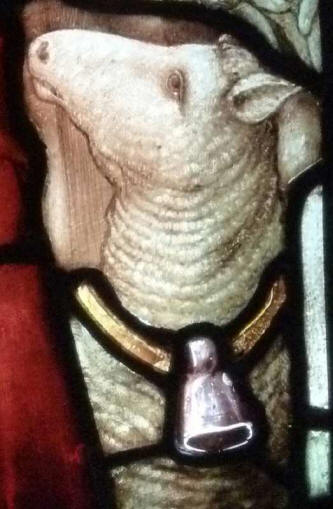
Our friend Woolly, truly cuddly.
See the whole window with Woolly and his
friends with their Good Shepherd here
General Bible#Jesus the Good Shepherd with His sheep
Top of page
Quotes (29 March 2013)
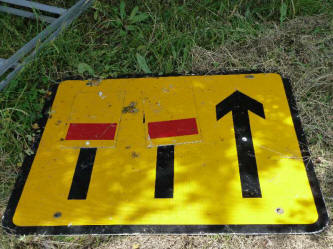
Fail, fail, succeed
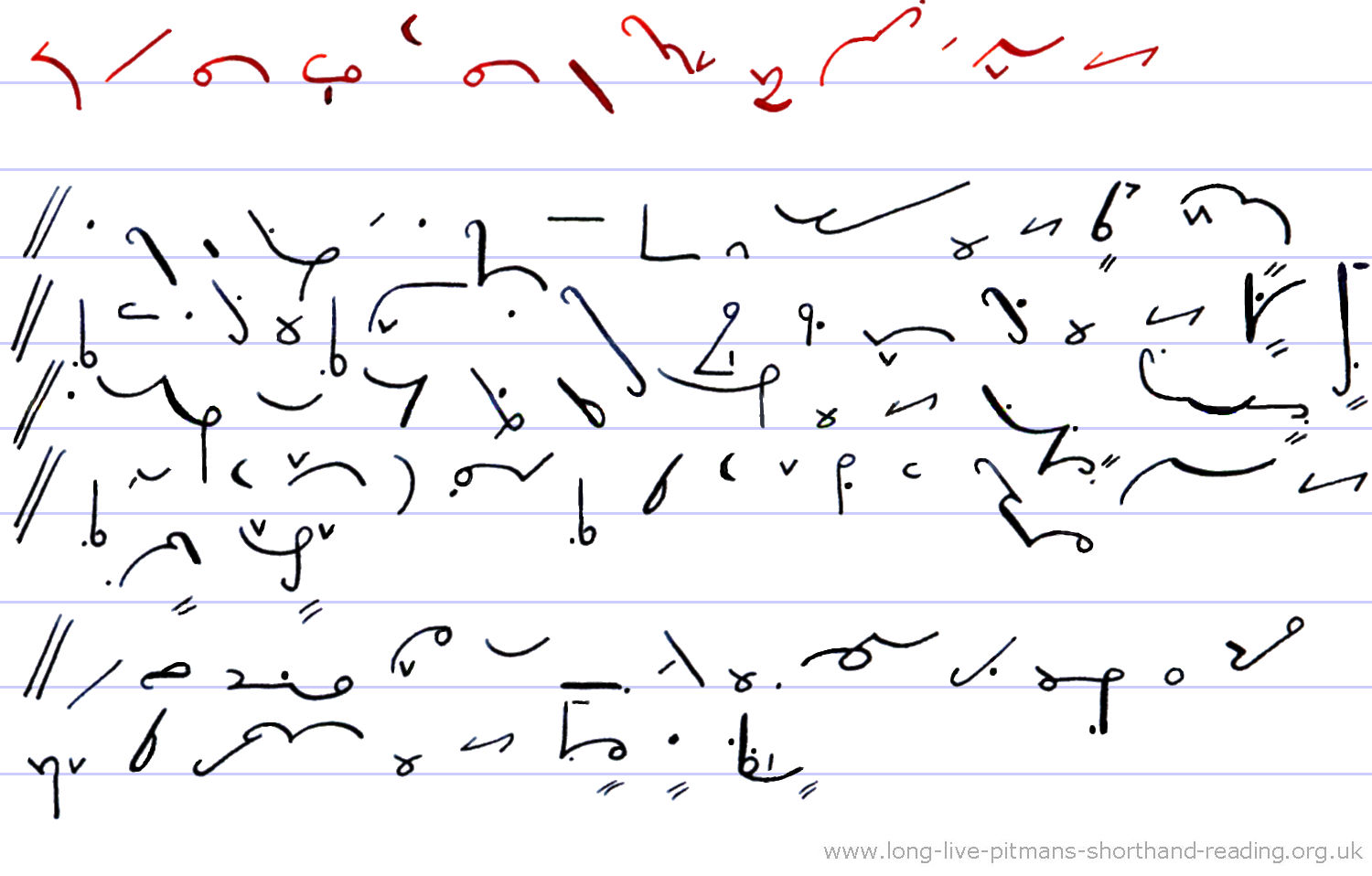
Here are some quotes that seem to be appropriate* to shorthand learning
and writing.
A No. 2 pencil and a dream can take you anywhere. Joyce Meyer
It's called a pen. It's like a printer, hooked straight to my brain.
Dale Dauten
An investment in knowledge pays the best interest. Benjamin Franklin
It's not that I'm so smart, it's just that I stay with problems longer.
Albert Einstein
Our greatest weakness lies in giving up. The most certain way to succeed
is always to try just one more time*. Thomas A. Edison
* "appropriate" Insert the diphone,
and the first vowel in "proper", as these are similar in outline and
meaning
* Omission phrase "wu(n) more time" using halving to represent the T of
"time" "mos(t) certain"
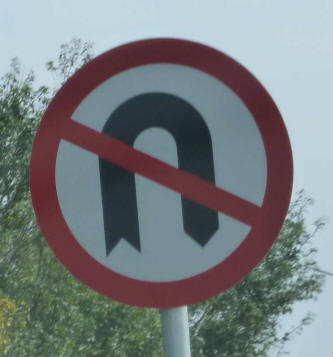
No going back
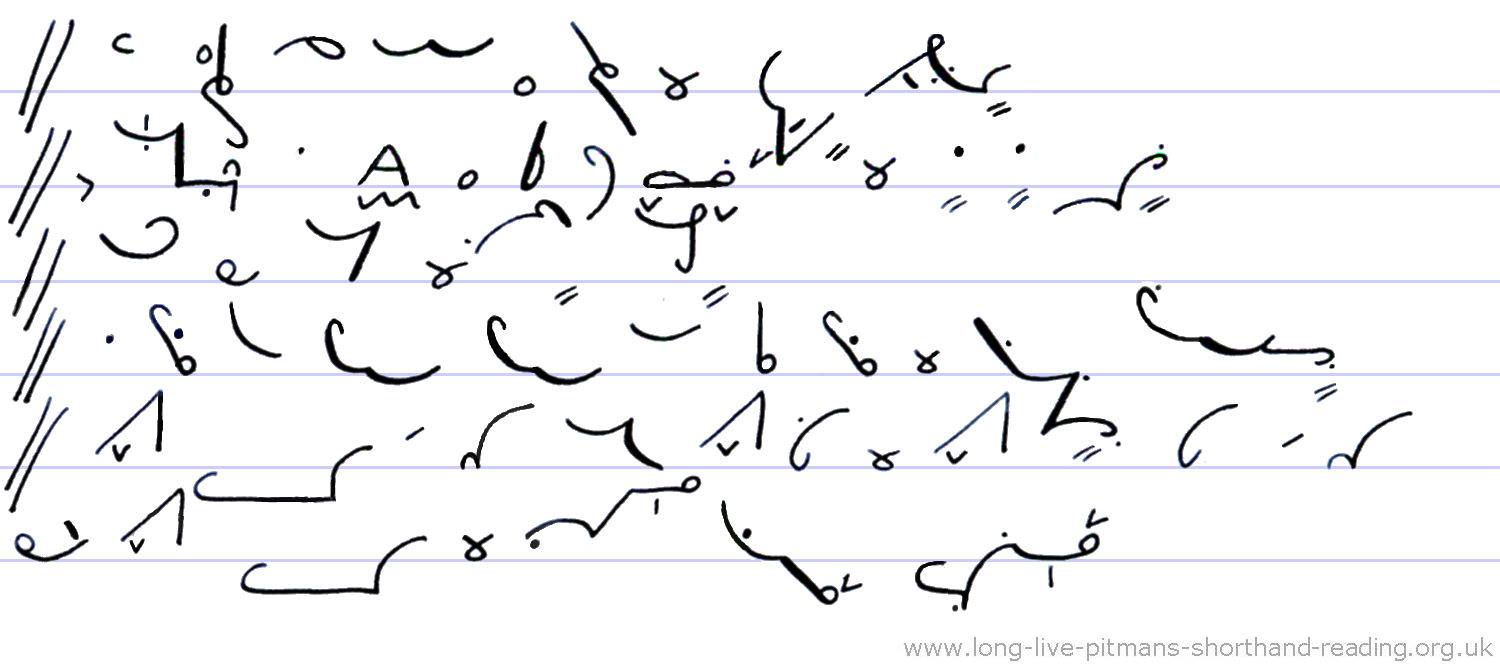
With self-discipline* most anything is possible. Theodore Roosevelt
To the uneducated, an A is just three sticks. A. A. Milne
Information is not knowledge. Albert Einstein
A place for everything, everything in its place. Benjamin Franklin
Write quickly, and you will never write well; write well, and you will
soon write quickly. Marcus Fabius Quintilianus
* "self-" words always take second position, to accord with the vowel in
"self"
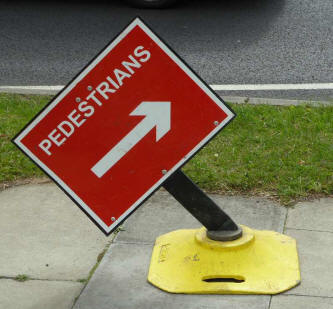
Onwards and upwards
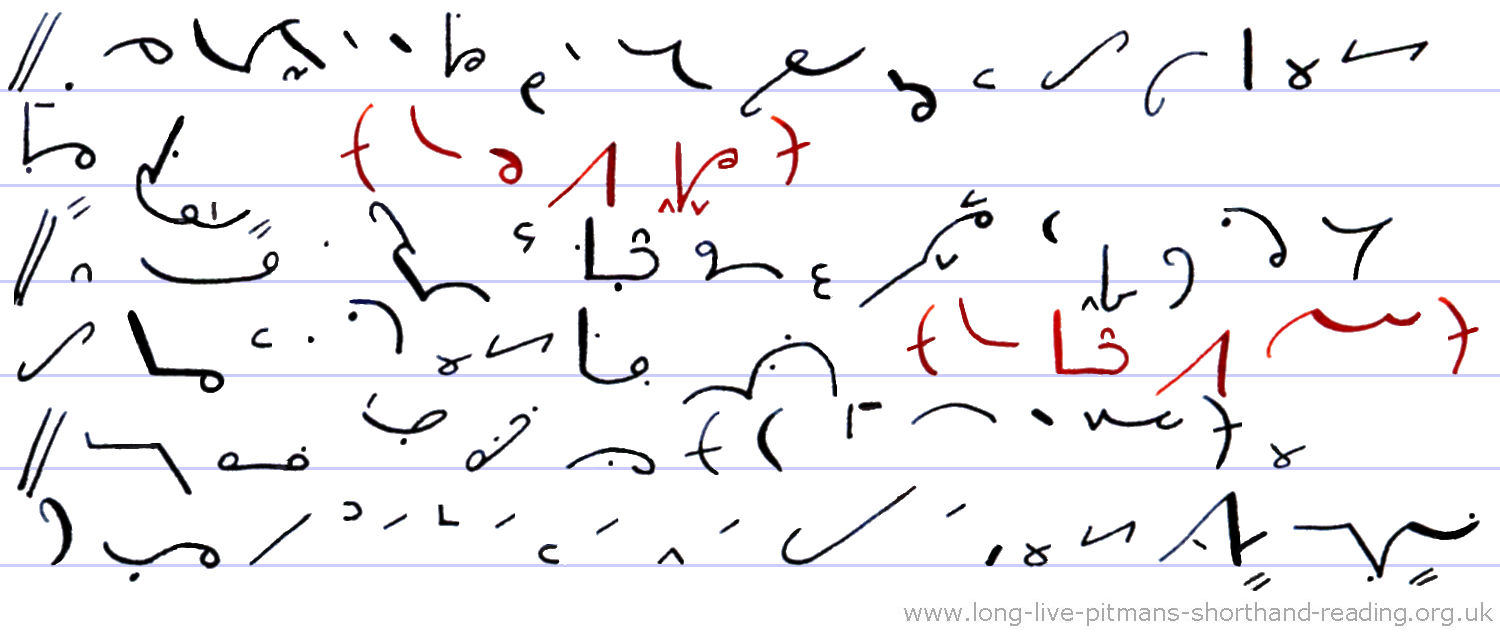
The most valuable of all talents is that of never using two words when
one will do. Thomas Jefferson (For "words" read "outlines")
You know there is* a problem with the education system when you realize
that out of the 3 R's, only one begins with an R. Dennis Miller (For
"education" read "longhand")
I keep six honest serving men (they taught me all I knew); their names
are What and Why and When and How and Where and Who. Rudyard Kipling
* "know there is" Doubling to represent "there"
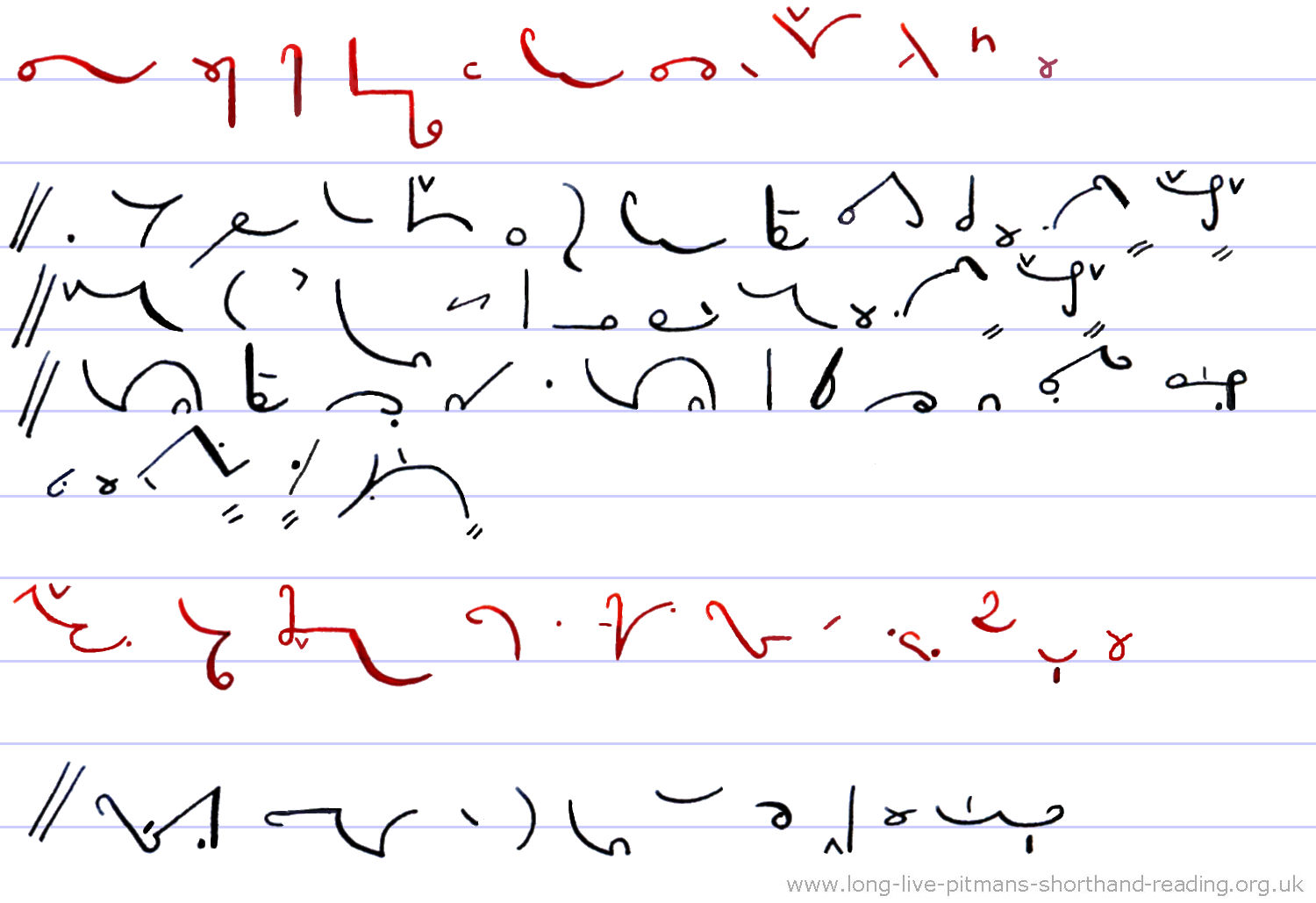
Something to consider during dictations, when everything seems to pile
up on you:
The only reason for time is so that everything doesn't happen at once*.
Albert Einstein
I never think of the future, it comes soon enough. Albert Einstein
Failure doesn't mean you are a failure it just means you haven't
succeeded yet. Robert H. Schuller
And finally, for those transcribing from an utterly perfect and complete
shorthand note:
Proofread carefully to see if you any words out. Unknown
(309 words)
* Omission phrase "at (wu)ns"

Be a regular
Top of page
|
